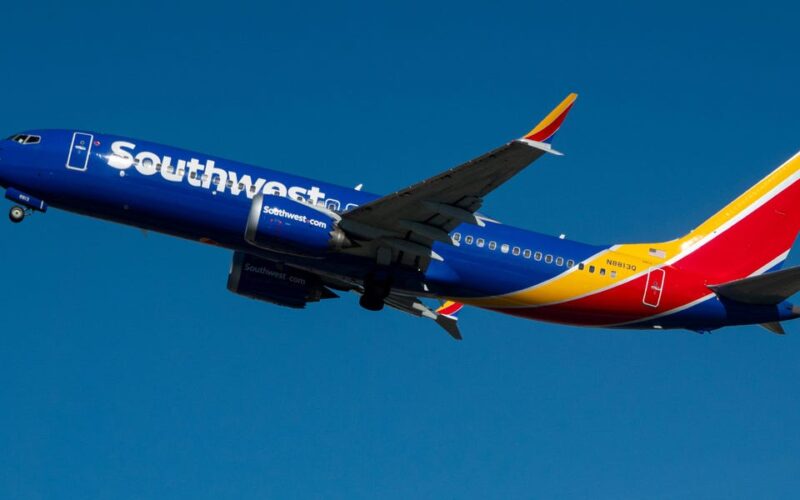- The FAA is reviewing an issue with the Boeing 737 Max’s engine.
- Boeing may need to come up with a permanent solution, The Seattle Times reported.
- That may further delay the certification of the Max 7 and Max 10, which are years behind schedule.
Boeing could face further delays to new jets as regulators examine an engine issue.
It comes after two incidents on Southwest Airlines Boeing 737 Max jets last year.
In March 2023, smoke poured into the cabin after a bird hit an engine shortly after takeoff from Cuba. Smoke also filled the cockpit in a December 2023 birdstrike incident. The pilots safely made emergency landings in both cases.
Boeing consequently issued a bulletin in February informing airlines about potential impacts and appropriate operating procedures.
On Thursday, the Federal Aviation Administration announced it was convening a review board to address an issue with the CFM LEAP-1B engine that powers the Boeing 737 Max.
It added that it wasn’t an “immediate flight-safety issue” but would develop a path forward and collaborate with Boeing, engine maker CFM, and European regulators.
The FAA may require 737 Max pilots to change takeoff procedures, The Seattle Times reported.
It added that this would involve turning off the airflow from the engines into the plane’s interior to prevent it from filling with smoke in the case of a birdstrike.
Such a change would be temporary until Boeing devises a permanent solution, the report said.
Coming up with that could further delay the certification of its 737 Max 7 and 737 Max 10 jets — the shortest and longest versions of Boeing’s newest narrow-body plane.
A delay would hamper Boeing’s turnaround as it looks to recover from a difficult year. 17,000 employees are set to be laid off, while workers are currently returning to factories after a seven-week strike.
Pete Syme/Business Insider
Boeing initially thought the Max 10 and Max 7 would be certified by the end of 2022, but the timeline was pushed back to 2024 and then to next year.
It came up against stricter rules in the wake of the 737 Max crashes in 2018 and 2019, when a combined 346 people died.
Boeing also withdrew a safety-exemption request related to the Max 7’s engine de-icing system earlier this year, as it faced more scrutiny after January’s Alaska Airlines blowout.
The delays have irritated airlines, including Boeing’s biggest customer, United Airlines.
CEO Scott Kirby said United would build an alternative plan without the Max 10 due to the delays and frustrations following the blowout.
“We are working with the authorities that are investigating these incidents,” Boeing said in a statement shared with Business Insider.
“We continue to follow regulatory processes to properly address potential issues and ensure the continued safety of the global fleet.”
Southwest, CFM, and the FAA did not immediately respond to BI’s requests for comment outside US working hours.
Source link
lol

